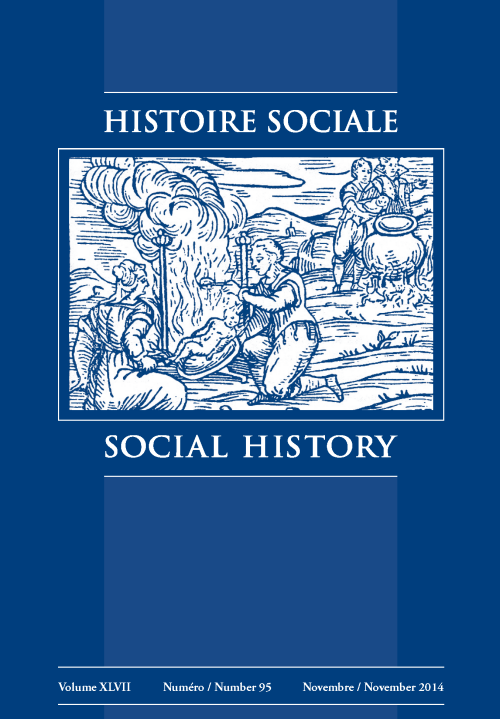Lower-Middle-Class Masculinity and the Young Men’s Christian Association, 1844-1880
DOI:
https://doi.org/10.1353/his.2014.0066Abstract
This article examines how old and new theological strains within nineteenth century Evangelicalism were adopted by British YMCAs to cater to the distinct wants and needs of their members in the decades immediately after their founding in 1844. YMCAs sought to address their members’ lower middle class educational, fraternal, and overall masculine requirements through the careful adoption of agencies of intellectual development. These programmes intersected with both Evangelical theology and the earthly self-improving aspirations of young commercial men. Although scholarship has devoted most of its attention to the British YMCA’s development of physical recreations in the nineteenth century, gymnasiums and athletic clubs did not become commonplace until the end of the century. Their acceptance within YMCA circles was facilitated by the success of these earlier YMCA programs that continued to provide opportunities for lower middle class masculine maturation until well into the twentieth century.
Cet article analyse comment les YMCA britanniques ont adapté les courants établis et les nouvelles tendances au sein du mouvement évangélique afin de répondre aux attentes et besoins variés de leurs membres au cours des décennies suivant leur fondation en 1844. Les YMCA ont cherché à répondre aux besoins de leurs membres de la classe moyenne inférieure en matière de scolarisation, de fraternisation et d’affirmation de la masculinité en adoptant des programmes favorisant le développement intellectuel, programmes en phase à la fois avec la théologie évangélique et les aspirations mélioratives des jeunes employés d’affaires. Les chercheurs se sont jusqu’ici surtout intéressés à l’essor des programmes d’activité physique au sein des YMCA britanniques au XIX e siècle, mais il faut noter que les gymnases et clubs athlétiques ne sont pas devenus courants avant la fin du siècle. Leur acceptation au sein des YMCA a justement été facilitée par le succès de ces précédents programmes qui ont offert des occasions de croissance aux jeunes hommes de la classe moyenne inférieure jusque tard au XX e siècle.


